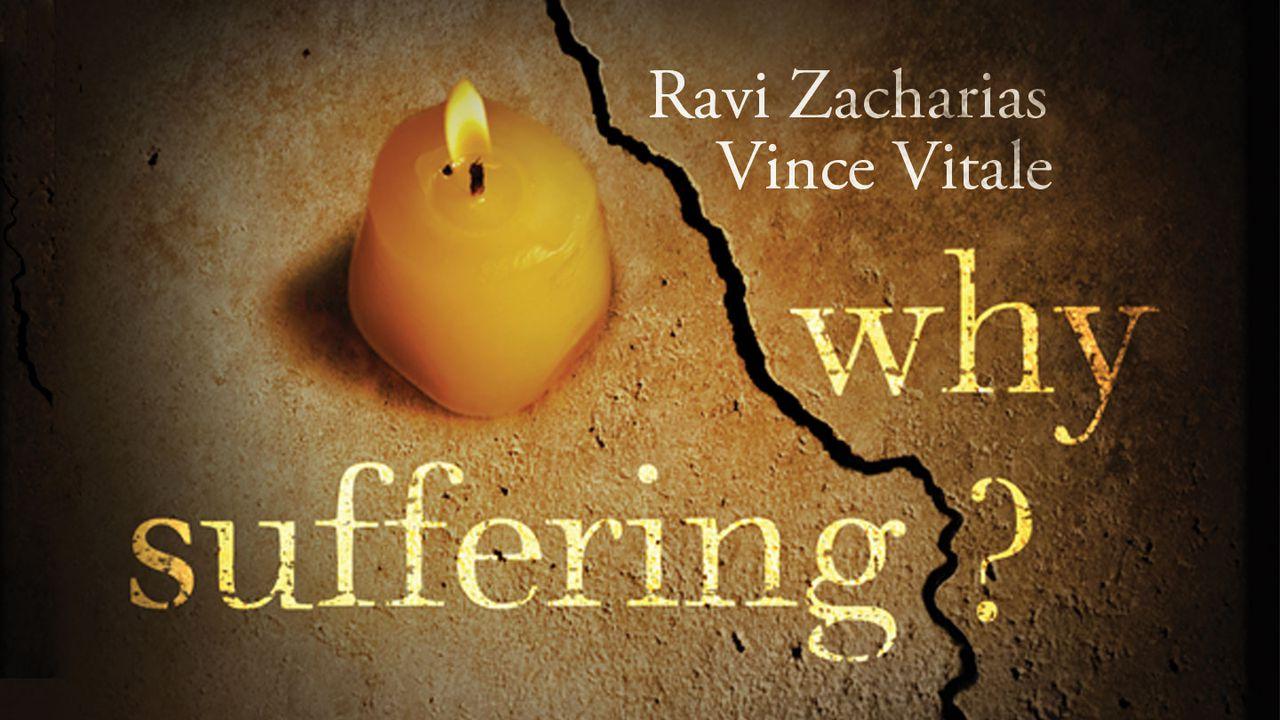Why SufferingSample

The Evidential Argument from Evil
The naturalist has two responsibilities, first to defend his attack on the Judeo-Christian worldview and, second, to justify his own explanation for pain and suffering. The first door through which the naturalist attempts to escape is the Evidential Argument from Evil.
In this instance evil as a category is used to argue against the existence of God. So by the naturalist’s judgment this is no longer a question for theism to answer; it’s the justification for atheism. The deduction here is that theism is a logical impossibility because of the presence of evil and suffering.
Atheist philosopher J. L. Mackie posited that the presence of evil made the defense of theism irrational. But this is the same Mackie who also said the following, in trying to explain the conundrum of good: “We might well argue . . . that objective, intrinsically prescriptive features, supervenient upon natural ones, constitute so odd a cluster of qualities and relations that they are most unlikely to have arisen in the ordinary course of events, without an all-powerful god to create them.”[1]
In other words, objective moral values form such an extraordinary mix of features that the existence of God is the most likely explanation for them.
The same dilemma is voiced with frustration by atheist philosopher Kai Nielsen: “We have not been able to show that reason requires a moral point of view, or that all really rational persons unhoodwinked by myth or ideology, need not be individual egoists or classical amoralists. Reason doesn’t decide here. The picture I have painted for you is not a pleasant one. Reflection on it depresses me. . . . Pure practical reason, even with a good knowledge of the facts, will not take you to morality.”[2]
In short, the categories of good and evil are rationally unsustainable by reason alone. As a result, there is no rationally compelling reason why we ought not to be self-centered individuals. The irony is that the rational “unhoodwinked” naturalist becomes depressed by this and the irrational “hoodwinked” Christian is at peace.
Enter Richard Dawkins, the master of belligerence: “The universe we observe has precisely the properties we should expect if there is, at bottom, no design, no purpose, no evil and no good, nothing but blind pitiless indifference. DNA neither knows nor cares. . . . And we dance to its music.”[3]
But one must ask, at what point did chance become design so that we do see something as good or evil? At what point does a DNA that “neither knows nor cares” become an arrangement that does know and care? If Dawkins is right, and you wouldn’t expect to see design but randomness, and nature had no pre-vision of the end, how is it that it blundered into design for moral reasoning while the process itself was amoral?
If we are merely dancing to our DNA, some dancers are bound to step on others’ toes and it will hurt. Dawkins would say that it’s better to be the one doing the hurting than the one being hurt, because to hurt is not immoral but to be hurt is to be at the wrong end of the pragmatic stick.
When he was head of the American Psychological Association, Hobart Mowrer wrote an article entitled “‘Sin’: The Lesser of Two Evils.” His conclusion is remarkable: “[W]e have discovered that to be ‘free’ in this sense, i.e., to have the excuse of being ‘sick’ rather than sinful, is to court the danger of also becoming lost. . . . In becoming amoral, ethically neutral, and ‘free,’ we have cut the very roots of our being; lost our deepest sense of self-hood and identity; and, with neurotics themselves, find ourselves asking, Who am I? What is my destiny? What does living (existence) really mean?”[4]
This is the deadly dilemma of the naturalist. By denying a transcendent basis for a definition of wrong, they actually lose the definition of what “is.” The overt attack is on the “ought,” but the real obliteration is of the “is.”
This is a self-mutilation. The full force is felt when in denying the category of evil naturalists actually posit the loss of self. So by trying to escape from this door, the Evidential Argument from Evil, the naturalist finds himself in a quicksand of his own worthlessness, unable to differentiate between any worth.
Reflection Questions
- If survival is the ultimate ethic, what does that say about the numerous decisions made that guarantee the non-survival of many, such as a parent sacrificing their life for the life of their child? Or a stranger dashing into oncoming traffic to rescue someone else?
- What do you make of Mowrer’s conclusion? Why does a denial of the reality of sin court the danger of becoming completely lost?
Bible Verses
- Psalm 14:1
- Psalm 53:1
Citations
[1] J. L. Mackie, quoted in J. P. Moreland, “Reflections on Meaning in Life without God,” Trinity Journal, n.s., 9, no. 1 (1988): 14.
[2] Kai Nielsen, “Why Should I Be Moral? Revisited,” American Philosophical Quarterly 21, no. 1 (1984): 90.
[3] Richard Dawkins, Out of Eden (New York: Basic Books, 1992), 133.
[4] Hobart Mowrer, “‘Sin’: The Lesser of Two Evils,” American Psychologist 15, no. 5 (1960): 303.
Scripture
About this Plan

This study is based on the book WHY SUFFERING? written by Christian apologist Ravi Zacharias and Vince Vitale, Dean of the Zacharias Institute, It is written for the Christian struggling for an answer, the seeker who thinks suffering disproves God’s existence, and the sufferer who needs a glimpse of a loving God.
More
Related plans

Lessons From Carols

Advent Meditations

Motivation to Never Give Up - Faith & Film

Defying Materialism: A Men's Devotional

Soaring Higher

When Your Child Fails: Turning Your Child’s Mistakes Into Moments of Grace and Growth

Devoted: All In

12-Day Advent Devotional for Families

Becoming Love: If We Start at Finish, Where Do We End? (Part 1)
